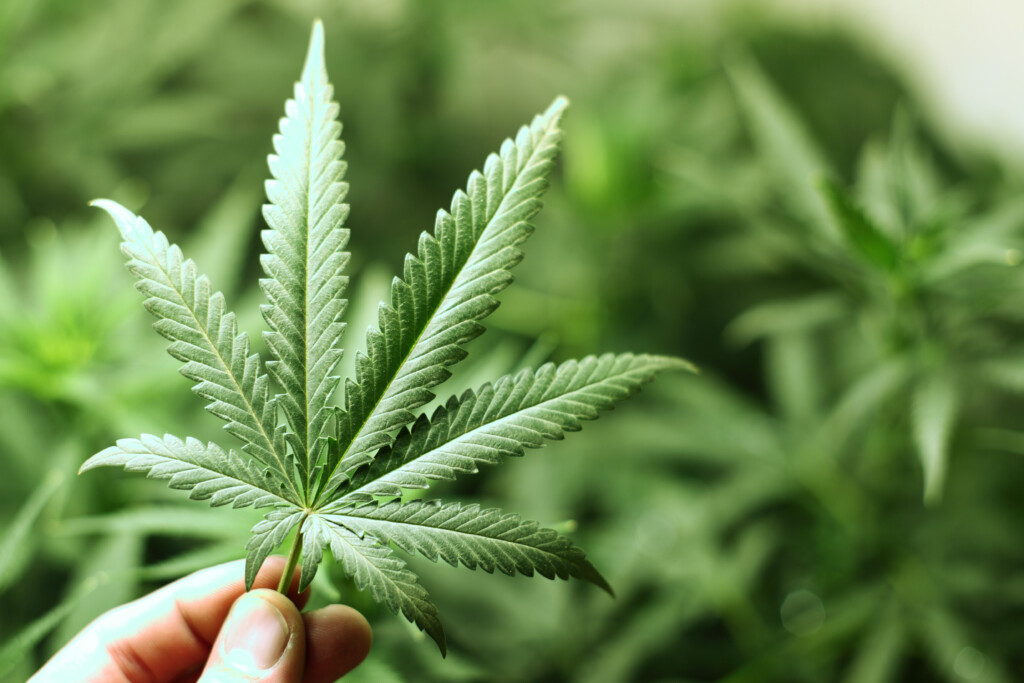In a monumental step toward reshaping America’s stance on drug policy, President Joe Biden has initiated discussions surrounding the declassification of marijuana.

This potential shift signifies a departure from decades of prohibitionist policies and marks a turning point in the nation’s approach to drug regulation. As the movement gains momentum, it raises important questions about the implications, benefits and challenges of such a decision.
Learn more about the significance of President Biden’s consideration to declassify marijuana and its potential impact.
The Current Landscape
Marijuana, once deemed a dangerous substance by federal law, has been classified as a Schedule I drug since the Controlled Substances Act (CSA) of 1970. This classification places it in the same category as substances like heroin and LSD, severely limiting research opportunities and hindering its potential medical applications. Over the years, however, public opinion on marijuana has evolved, with numerous states legalizing it for medicinal and even recreational use.
President Biden’s Stance
President Biden’s perspective on marijuana has evolved over time. While he was a vocal supporter of strict drug policies during his tenure as a senator, his approach has softened in recent years. He has expressed openness to medical marijuana, and his administration has taken steps to address some of the inequities caused by the War on Drugs, particularly within communities of color.
Politico reported that the Biden administration’s Department of Human Services wants the Drug Enforcement Administration (DEA) to loosen the federal restrictions currently held on marijuana. The agency wants the drug to be classified as Schedule III instead of Schedule I under the CSA. The DEA classifies drugs classified as Schedule III as “substances with a low to moderate potential for physical and psychological dependence.” These drugs can still lead to addiction or abuse but are less dangerous than drugs in Schedules I and II.
Declassification’s Potential Impact
- Criminal Justice Reform: One of the most compelling arguments for declassifying marijuana is its potential to advance criminal justice reform. The War on Drugs disproportionately impacted minority communities, leading to unjust arrests and lengthy sentences. Declassification could pave the way for expunging criminal records related to low-level marijuana offenses, offering a fresh start to many individuals.
- Economic Opportunities: The legal cannabis industry has already shown impressive growth in states where it’s permitted. Nationwide declassification could create new economic opportunities, generating jobs and tax revenue that could contribute to community development and public services.
- Medical Research and Treatment: Declassifying marijuana could revolutionize medical research, enabling scientists to explore its potential therapeutic applications more freely. With ongoing studies suggesting its effectiveness in treating conditions like chronic pain, epilepsy, and even post-traumatic stress disorder, such research could lead to groundbreaking medical breakthroughs.
- Public Health and Safety: Legalization and regulation of marijuana could enhance public safety by eliminating the black market and ensuring product quality. Strict regulations would help prevent contamination and ensure that products are accurately labeled, promoting responsible use.
- Fiscal Benefits: The taxation of legal marijuana sales could generate significant revenue for both federal and state governments, potentially aiding in funding various public programs and initiatives.
Challenges and Considerations
While the prospect of declassification holds promise, it also comes with challenges. Critics argue that marijuana is still associated with potential health risks, particularly for young users. Balancing personal freedom with public health concerns will be a complex task. Additionally, navigating international drug treaties and addressing concerns about impaired driving are essential considerations.
President Biden’s willingness to explore the declassification of marijuana reflects the changing dynamics of public opinion and the evolving understanding of the drug’s potential benefits. The conversation surrounding this issue is far from over, but the fact that it’s being discussed at the highest levels of government marks a significant shift. As the nation grapples with the complexities of this potential change, one thing is certain: The trajectory of drug policy in the United States is entering a new chapter, one that has the potential to reshape communities, economies, and medical landscapes for years to come.
Photo Credit: DepositPhotos.com




